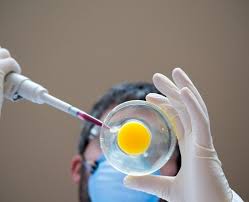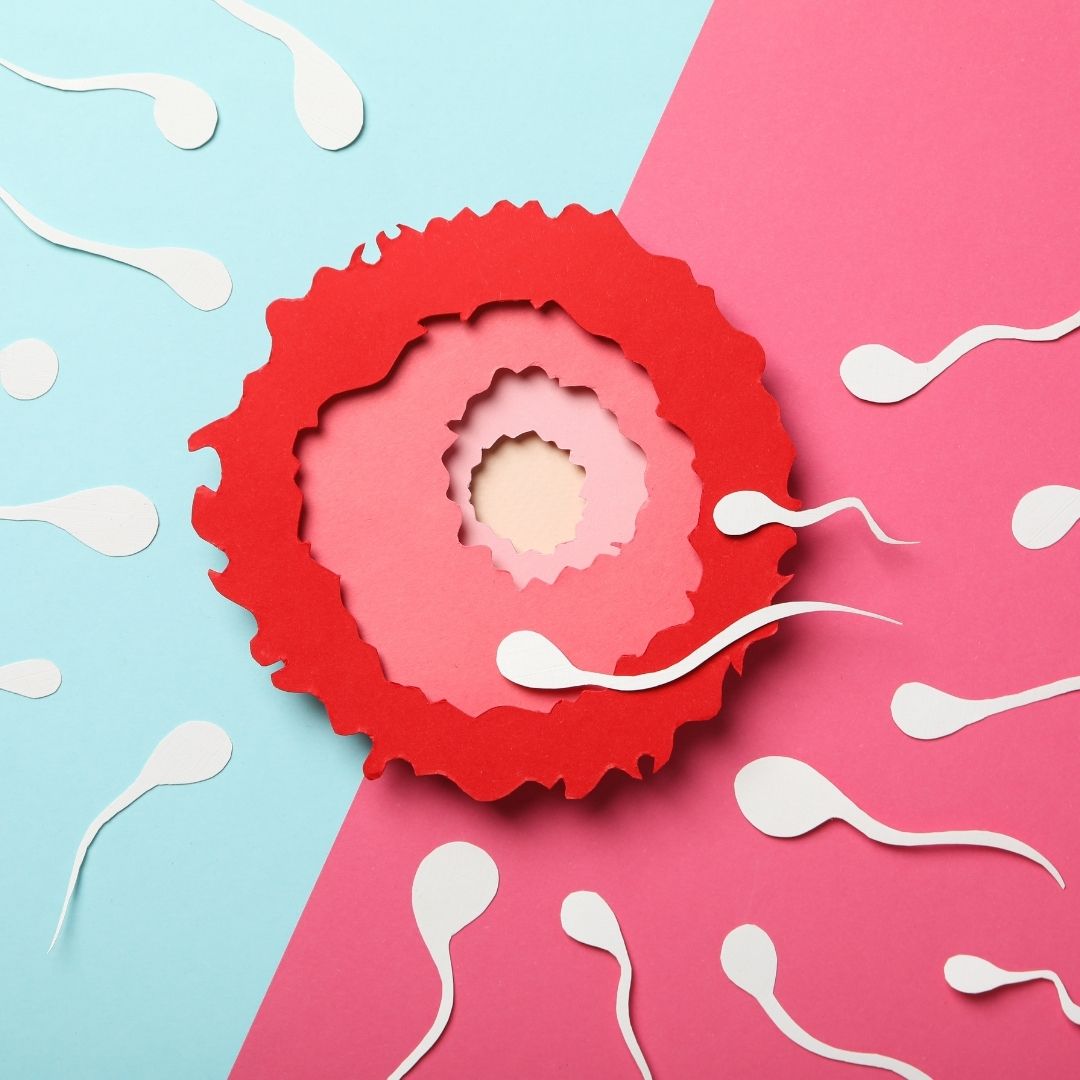
IVF vs IUI
When couples are facing infertility issues, there are a variety of treatment options available to help them conceive. Two popular options are IVF (In Vitro Fertilization) and IUI (Intrauterine Insemination). While both treatments aim to achieve the same goal, there are significant differences in the procedure, success rates, and overall effectiveness.
In this article, we’ll explore what IUI vs IVF are, how they differ, compare their success rates, and ultimately help you determine which option is right for you.
What is IVF?
IVF is a process that involves retrieving eggs from a woman’s ovaries and fertilizing them with sperm in a laboratory dish. The fertilized eggs (embryos) are then transferred back into the uterus, where they have the opportunity to implant and grow. This procedure is typically recommended for women who have issues with their fallopian tubes, endometriosis, or low ovarian reserve.
IVF treatment typically involves several steps. The first step is ovarian stimulation, which involves taking fertility drugs to increase the number of eggs that will be retrieved. Once the eggs are mature, they are retrieved through a minor surgical procedure. The eggs are then fertilized in a laboratory, where they are monitored for several days to determine which embryos are most viable. Finally, one or more embryos are transferred back into the uterus, with any additional embryos being frozen for future use.
What is IUI?
IUI, on the other hand, is a less invasive fertility treatment that involves placing sperm directly into a woman’s uterus. This procedure is often used for couples who have unexplained infertility or mild male factor infertility. It may also be used in conjunction with ovulation-inducing medications to increase the chances of success.
The IUI procedure involves collecting a semen sample from the male partner or a sperm donor. The sperm is then “washed” in a laboratory to remove any impurities and increase the concentration of healthy sperm. The sperm is then inserted directly into the uterus using a catheter.

What are the Differences Between IVF or IUI?
IUI vs IVF are two types of fertility treatments. While both can be used to help individuals or couples conceive a child, they differ in several ways.
IVF is a procedure where eggs are retrieved from a woman’s ovaries and fertilized with sperm in a laboratory dish. Once fertilization occurs, the resulting embryos are transferred back into the woman’s uterus. In contrast, IUI is a procedure where sperm is inserted directly into the woman’s uterus during ovulation.
The primary difference between IUI vs IVF is that IVF involves more complex medical procedures and laboratory work than IUI. The process of IVF includes ovarian stimulation to produce multiple eggs, egg retrieval, fertilization in the lab, and embryo transfer. On the other hand, IUI does not involve ovarian stimulation, egg retrieval, or fertilization outside the body. Instead, it relies on the natural process of ovulation and the ability of sperm to reach the egg on its own.
Another difference is that IVF has a higher chance of success compared to IUI. The success rate for IVF is higher than IUI because the embryos are grown in a controlled environment and the best ones are chosen for transfer. This results in a higher chance of implantation and pregnancy. However, IVF is more invasive, more expensive, and more time-consuming than IUI.
Additionally, IVF can be used for individuals or couples who have more complex fertility issues such as tubal blockage, male factor infertility, or endometriosis. IUI is usually recommended for couples who have unexplained infertility, cervical mucus issues, or mild male factor infertility.
In summary, while both IIUI vs IVF can be effective fertility treatments, they differ in the complexity of the procedures involved, the success rates, and the types of infertility they can address. A medical professional can help couples or individuals determine which treatment is best for their unique situation.
Success Rate IUI vs IVF
The success rates of IUI vs IVF vary depending on several factors, including the age and health of the individuals involved, the cause of infertility, and the number and quality of eggs and sperm.
IVF success rates are generally higher than those of IUI, particularly for women over the age of 35. The success rate of IVF is about 40% for women under the age of 35, 31% for women aged 35 to 37, and 21% for women aged 38 to 40. For women over the age of 40, the success rate drops to around 5-10%.
IUI success rates are generally lower than those of IVF, and the success rate depends on factors such as the cause of infertility and the age of the woman. The success rate of IUI is about 10-20% per cycle, and this rate may increase with multiple cycles of treatment. IUI may be a suitable option for couples with mild infertility or those who are unable to conceive naturally due to cervical issues or low sperm count.
It is important to note that success rates can vary widely among fertility clinics and individual cases. Factors such as the number of embryos transferred, the quality of the embryos, and the expertise of the medical team can all impact the success rate of both IVF or IUI.
Which is More Painful: IVF or IUI?
Both IVF or IUI are relatively painless procedures that are performed with the use of local anesthesia. However, some women may experience mild discomfort during and after the procedure.
During an IUI procedure, a thin, flexible catheter is inserted through the cervix and into the uterus, which may cause some cramping or discomfort. This discomfort is typically mild and short-lived, and most women are able to resume their normal activities immediately after the procedure.
IVF is a more invasive procedure that involves several steps, including ovarian stimulation, egg retrieval, and embryo transfer. The most uncomfortable part of IVF is usually the egg retrieval process, which involves the insertion of a needle through the vaginal wall to retrieve the eggs from the ovaries. This procedure is performed under conscious sedation and typically takes only 10-15 minutes. After the procedure, women may experience some mild cramping and discomfort, but this usually subsides within a few days.
In general, neither IVF nor IUI is considered a painful procedure, and most women are able to tolerate them well with the help of local anesthesia and pain medication if needed. However, some women may experience more discomfort than others, depending on their individual pain tolerance and the specific circumstances of their treatment.
The Study of IUI vs IVF
In a recent multi-center clinical study involving 500 couples with unexplained infertility, researchers compared the outcomes of IVF or IUI treatments. The study aimed to provide insights into which treatment yielded better success rates for this specific group of couples. Over the course of a year, the study found that IVF had a significantly higher success rate in achieving pregnancy among couples with unexplained infertility, with 45% of couples successfully conceiving through IVF compared to 18% with IUI. The results of this study can help guide couples with unexplained infertility to make more informed decisions regarding their choice of treatment options.
Which Is Right for You?
Choosing the right fertility treatment can be a complex decision that depends on a variety of factors, including the cause of infertility, the age and health of the individuals involved, and personal preferences.
For couples with mild infertility or those who are unable to conceive naturally due to cervical issues or low sperm count, IUI may be a suitable option. IUI is a less invasive and less expensive procedure than IVF, and it can be performed relatively quickly with minimal downtime. IUI is also a good option for couples who want to avoid multiple pregnancies or who do not want to undergo the more invasive procedures involved in IVF.
For couples with more severe infertility or those who have not had success with other treatments, IVF may be a better option. IVF has higher success rates than IUI and can be used to address a wider range of infertility issues. IVF is also a good option for women with age-related infertility or those with tubal blockages or other issues that prevent natural conception.
In some cases, a combination of IUI vs IVF may be recommended to maximize the chances of success. This approach, known as controlled ovarian stimulation (COS), involves using fertility drugs to stimulate the ovaries to produce multiple eggs, which can then be retrieved and fertilized using IVF. The resulting embryos can be transferred to the uterus using IUI, increasing the chances of a successful pregnancy.
Choose the Right Treatment with Healthy Türkiye
Ultimately, the choice between IUI vs IVF depends on a variety of factors, including the individual circumstances of each couple. It is important to discuss your options with Healthy Türkiye’s fertility specialists, who can help you determine the best course of treatment based on your medical history, age, and other factors. They can also provide you with information about the potential risks and benefits of each treatment and help you make an informed decision about your fertility journey.




